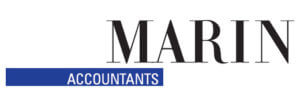Choosing the right structure for your business is one of many decisions a business owner has to make. Since your future and that of your business could depend on what you decide, it is essential that you seek professional advice on which business structure is best for you.
When starting a business, one of the first key decisions you make – apart from your business’s name – is the business structure. In basic terms, the structure of your business is the category within which it fits for legal, financial and institutional rules. In Australia, there are four common structures:
- Individual or Sole Trader
- Partnership
- Discretionary, Unit, or Hybrid Trust
- Company
Each structure is different and has its own set of obligations determining your tax liabilities and responsibilities as a business owner, ongoing costs, and volume of paper work. Your choice of business structure will also affect how your business’s assets are protected. Asset protection means that if someone makes a claim against you or your business, certain assets will be protected to reduce the financial damage you might suffer. Your choice of business structure will, therefore, affect your potential for personal liability.
While it is possible to alter your business structure as your business grows, it is recommended that you discuss your options with your accountant to minimise both your tax and personal financial liabilities.
Let’s take a look at the four options available to businesses in Australia.
1. Individual or Sole Trader
An individual or sole trader structure is just as it sounds – you are the prime decision maker, and you are legally responsible for all financial aspects of your business, from profit to debts and losses. Your personal liability is unlimited, so in the event of a claim being made against your business, you will be personally liable to pay the claimant. As a sole trader, you can employ people, use your personal tax number and bank account, and need to keep financial records for five years. Reporting requirements are limited, and costs are generally low.
2. Partnership
You can usually set up a sole trader or partnership structure by simply registering your Australian Business Number with the Australian Business Register. Setting up is relatively easy. A partnership is suitable for those running a business together with up to 20 others. We can help you consult a solicitor for a formal partnership agreement to be drawn up.
There are two types of partnership; general and limited, and each is governed by the laws of the state or territory in which you reside. With a partnership, partners share control, and all partners are liable for business debts. Each partner is responsible for paying their own tax and superannuation.
Income Distribution
In a partnership, the net income (or net loss) is shared among the partners in proportion to the income sharing ratio. This is set out in the partnership agreement.
Liability Unlimited
In an unlimited liability business, all of the partners in a partnership are equally responsible for the debts of the business. An individual’s personal assets could be seized to cover the balance owed.
Companies can choose to form a limited partnership. The advantage is that the shareholder’s liability is restricted to the amount of the investment in the company. Generally, an individual’s assets cannot be seized to repay the company’s debts.
Protecting Your Assets
If your business is more established, growing, or you have assets outside the business to protect, then you should consider other, more complex business structures to reduce your personal liabilities.
3. Trusts
At its most basic, a trust is a structure whereby a trustee distributes the income from the trust and administers the business on behalf of the trust’s members (beneficiaries) in accordance with the trust deed. A trust reduces your personal liabilities and protects your assets; family member’s assets are protected if the business is sued and if an individual is sued, the business’s assets are generally unaffected.
There are three different types of trust, discretionary, unit, and hybrid. Hybrid trusts are out of the norm. Therefore, should you wish to find out more about hybrid trusts, please do not hesitate to contact us.
Discretionary Trust
Also known as a family trust (if a family trust election has been made), the advantage of a discretionary trust is that the trustee has the flexibility to distribute profit to the various trust beneficiaries as he or she sees fit as long as they comply with the trust deed.
A common business structure is where a family trust owns the shares of a company that is trading. When there are dividends that are to be distributed, the trust receives these dividends from the business and these can then be distributed among family members at the discretion of the trustee.
Unit Trust
A unit trust is probably the simpler of the two trusts. With a unit trust, partners hold a fixed number of units, so the rights to income and capital are similarly fixed.
4. Company
The company structure is probably the most complex business structure, but also the one that presents shareholders with the least personal liability. With this structure, the company is considered to be a separate legal entity and therefore the company (rather than the shareholders) is liable for debts and can be sued in its own right. There are still times that a director is liable for the debts of a company. These include unpaid superannuation and PAYG withholding.
Annual profit is taxed at a flat rate. There is a range of requirements under the Corporations Act and various Tax Acts, and companies have a high set-up cost and reporting responsibilities.
How to Choose the Right Business Structure
The type of structure you choose for your business will depend on the size and type of your business, your personal circumstances, and how much the business grows. To make the best decision when starting out – or even as your business evolves – talk to an expert at Marin Accountants by calling 03 9645 9229. Alternatively, send us an email and we will get back to you as soon as possible. Here at Marin Accountants, we will help to ensure you make the decision that is best for you and for your business.



